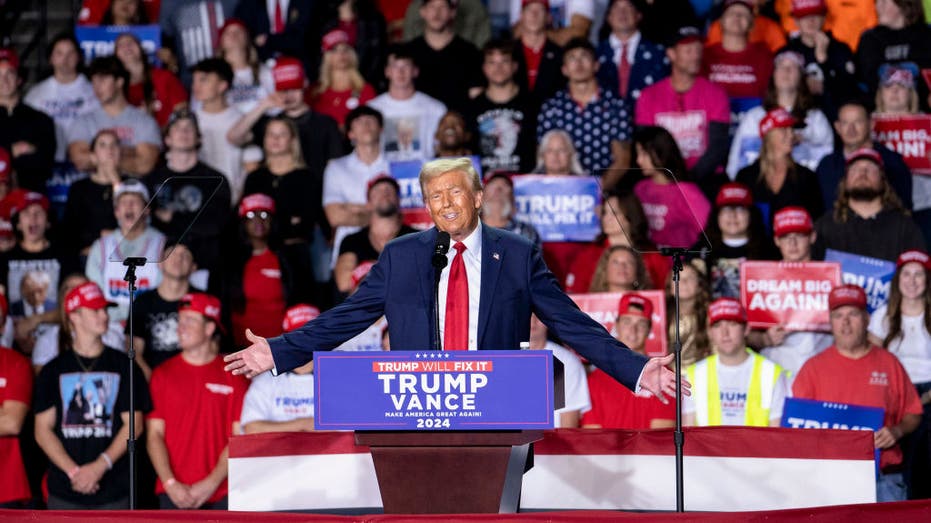How to start World War III in 8 easy steps
No one wants World War III, of course. But, ironically, the policymakers and pundits who say they want it least are those most likely to start it.

No one wants World War III, of course. But, ironically, the policymakers and pundits who say they want it least are those most likely to start it.
Call it the law of unintended consequences, or think of the road to Hell as being paved with good intentions.
There are eight steps that are pretty much guaranteed to lead to a monumental Western war with Russia. Judge for yourself just which step we’re on at present.
First, start by ignoring the fact Vladimir Putin has, over the last quarter-century, progressively dismantled all of Russia’s democratic and semi-democratic institutions. Ignore that he has replaced them with one-person rule, abetted by a criminal and corrupt elite that qualifies as fascist by any reasonable definition. Instead of focusing on Russia’s transformation into a fascist state and regarding it as a worrisome phenomenon, excuse Putin’s behavior on the grounds that he’s only doing what the Russian people want and that Russian fascism poses no threat to Russia’s neighbors or to the West.
Second, continue by ignoring the clear signals of imperialist intent emanating from the Kremlin since the USSR fell apart in 1991. Downplay the striking similarity between the Kremlin’s concern for Russian-speakers living in the former Soviet republics and Adolf Hitler’s concern for the rights of ethnic Germans in Czechoslovakia and Poland.
Completely ignore the central place that imperialism and territorial expansion have played in the political agendas, self-legitimation strategies and propaganda of every Russian state for centuries.
Third, ignore history, ignore regime type and ignore personality. In other words, ignore Russia; ignore Russian politics, society and culture; and, above all, ignore Putin and his criminal past and present. Arm yourself only with the half-baked theories of the “realist school” of international relations. Pretend that this school of thought holds all the answers to all the questions because its gross simplification of reality is in fact accurate.
Then excuse Putin’s aggressive behavior toward Ukraine on the grounds that he was terrified of the possibility of Ukraine’s possible membership in NATO in 2045. Pretend that he was somehow compelled to forestall that theoretical eventuality by launching a full-scale genocidal war more than two decades in advance. Reinforce this belief by electing European prime ministers — and an American president — with openly Russophile stances.
Fourth, regard Ukraine as a big place with nice people and corrupt leaders, and not as a strategically important component of Western security. Ignore that its continued existence as a sovereign state ensures the West’s survival as a community of nations. Pretend that Putin’s obsession with Ukraine has no geopolitical implications, either now or in the future, and that the West need not worry about what he would do next were Russia to defeat and swallow Ukraine. Reinforce this belief by supporting policymakers with openly pro-Putin stances.
Fifth, regard Putin as a run-of-the-mill rational leader who desires only to stay in power and maintain Russia’s security and who therefore acts in accordance with universally shared rationality assumptions and not with Russian imperial ideology and fascism. Explain his destruction of the Russian military and economy by arguing that his idea of rationality sometimes differs from that held by the West, without explaining why, how and when these differences manifest themselves.
Sixth, compel Ukraine to agree to any kind of cease-fire or peace that precludes a Russian defeat in the hope and expectation that Putin will happily accept it, will recognize Ukraine’s right to exist as a sovereign state and will abandon all imperialist aspirations in order to rejoin the international community. Dismiss Ukrainian fears of continued Russian aggression as the feverish ravings of nice people in a big place who don’t appreciate the wisdom of realist theory and are suicidally inclined to downplay the likelihood of Putin’s using a nuclear device.
Seventh, complete steps one through six and then patiently wait for Russia to become a soft and cuddly state committed to world peace. Express shock and surprise when Russia reasserts its fascist values, rearms and relaunches its genocidal war — against Ukraine and those countries of the West that dared to agree with Ukraine’s assessment. Then blame the resultant world war on the possibility of Ukraine’s membership in NATO in 2045.
Eighth, repeat steps one through seven, place all your hopes in a newly elected American president with unrealistic expectations regarding the war, and remain puzzled by the fact that all your good intentions didn’t prevent a direct clash between Russian and NATO troops.
Bemoan reality’s unwillingness to act according to your notions — and blame World War III on your critics.
Alexander J. Motyl is a professor of political science at Rutgers University-Newark. A specialist on Ukraine, Russia and the USSR, and on nationalism, revolutions, empires and theory, he is the author of 10 books of nonfiction, as well as “Imperial Ends: The Decay, Collapse, and Revival of Empires” and “Why Empires Reemerge: Imperial Collapse and Imperial Revival in Comparative Perspective.


